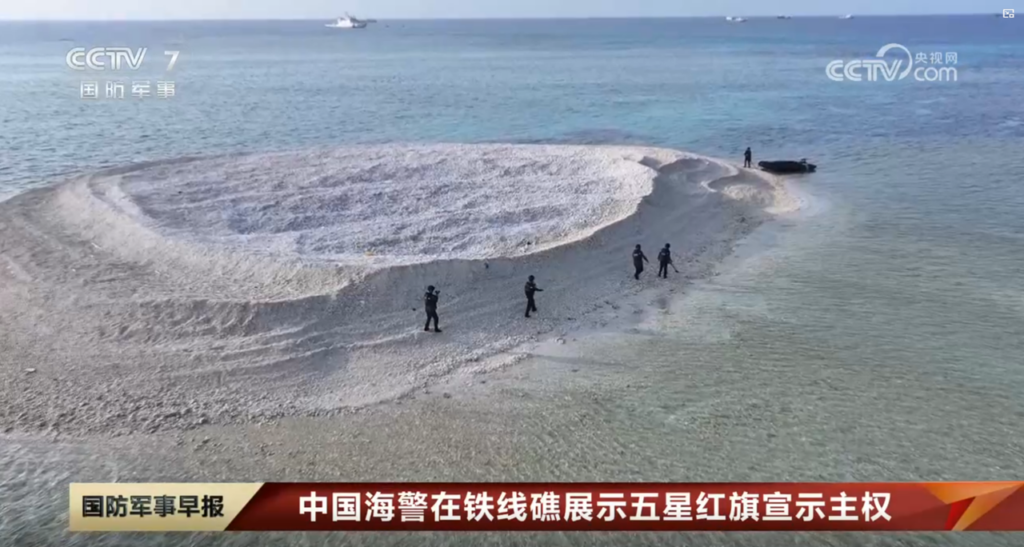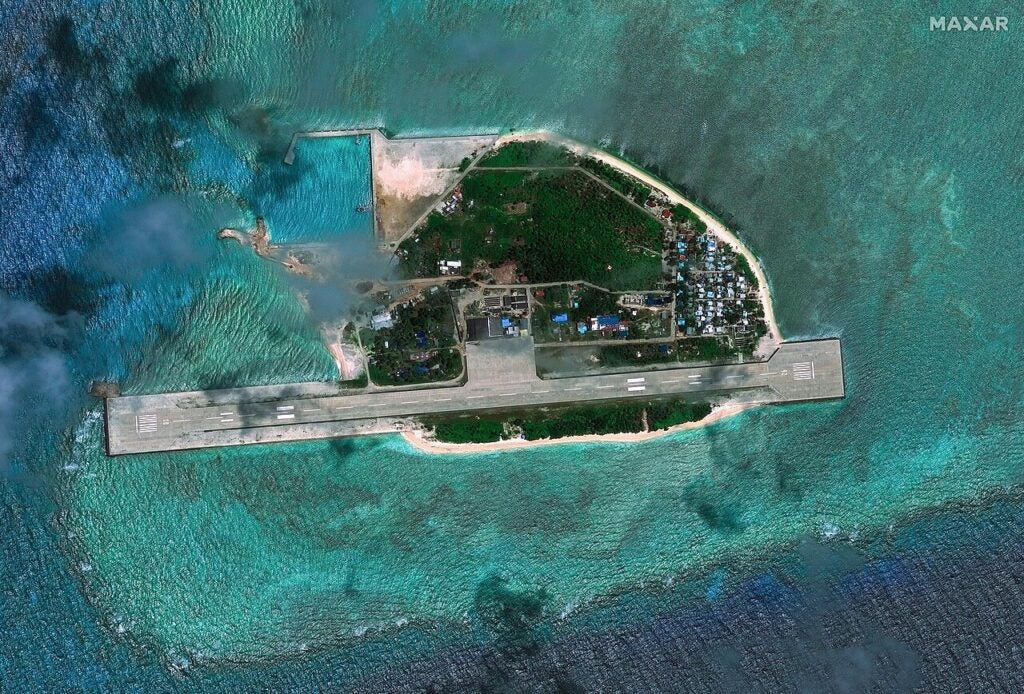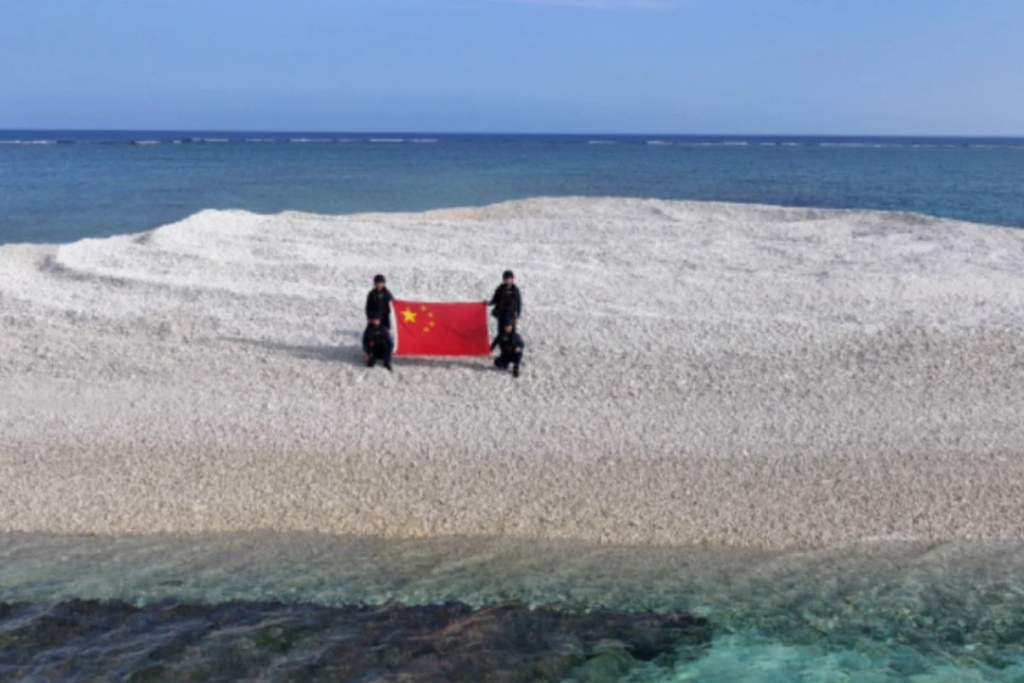Chinese Coast Guard Lands Officers on Reef Near Philippine Military Outpost in South China Sea
On April 24, Chinese state media reported that the Chinese Coast Guard (CCG) landed officers on Sandy Cay reef. “The China Coast Guard enforced maritime management and exercised sovereign jurisdiction,” the Global Times said. The announcement was paired with the release of photographs depicting CCG officers patrolling the sandbar and unfurling a Chinese flag.

Sandy Cay lies in the Spratly islands around 480 km away from the Philippines proper and about 1,000 km away from China proper. While the disputed feature is mostly submerged during high tide and features no vegetation or permanent structures, its location is critical. It is less than three kilometers away from Thitu Island which is inhabited by 200-300 Filipino civilians and serves as the country’s most important military installation in the Spratly Islands. Meanwhile, China’s fortified Subi Reef lies about 24 kilometers away.
Equipped with a permanent military garrison, airstrip, and seaport, Thitu is the anchor for Filipino presence in the Spratly Islands. Its permanent population greatly strengthens Filipino claims over sovereignty in the South China Sea, and the island holds a significant political and symbolic importance for resistance against Chinese encroachment in the region. Moreover, works are ongoing to upgrade port infrastructure to enable larger Philippines Coast Guard and Navy vessels to dock.

The waters surrounding Sandy Cay are no stranger to international tensions. In January, two vessels from the Philippine Bureau of Fisheries surveying water around the reef were repeatedly harassed by Chinese Coast Guard vessels. As a result of “aggressive maneuvering” by Chinese ships and helicopters, the Philippines ships were forced to withdraw without completing their survey.
Chinese officials defended these escalatory actions as “law enforcement activities in China’s jurisdictional waters to resolutely safeguard national territorial sovereignty and maritime rights and interests”. Additionally, the PRC has accused the Philippines of being responsible for degrading the local ecosystem and has tried to bolster their claims through an environmental argument. However, the Chinese position does not conform to international law and previous binding decisions by the Permanent Court of Arbitration which have rejected Chinese sovereignty over the contested waters. It remains to be seen how China will perpetuate their claim to Sandy Cay.

